Thank you for buying this ebook, published by NYU Press.
Sign up for our e-newsletters to receive information about forthcoming books, special discounts, and more!
Sign Up!
About NYU Press
A publisher of original scholarship since its founding in 1916, New York University Press Produces more than 100 new books each year, with a backlist of 3,000 titles in print. Working across the humanities and social sciences, NYU Press has award-winning lists in sociology, law, cultural and American studies, religion, American history, anthropology, politics, criminology, media and communication, literary studies, and psychology.
The Color of Fascism

Lawrence Dennis in his study. Photo by Charles E. Steinheimer. Courtesy of Time-Life Pictures/Getty Images.
The Color of Fascism
Lawrence Dennis, Racial Passing, and the Rise of Right-Wing Extremism in the United States
Gerald Horne

NEW YORK UNIVERSITY PRESS
New York and London
www.nyupress.org
2006 by New York University
All rights reserved
Library of Congress Cataloging-in-Publication Data
Horne, Gerald.
The color of fascism : Lawrence Dennis, racial passing, and the rise
of right-wing extremism in the United States / Gerald Horne.
p. cm.
Includes bibliographical references and index.
ISBN-13: 978-0-8147-3686-9 (cloth : alk. paper)
ISBN-10: 0-8147-3686-6 (cloth : alk. paper)
1. Dennis, Lawrence, 18931977. 2. FascistsUnited States
Biography. 3. Right-wing extremistsUnited States--Biography.
4. African AmericansBiography. 5. Passing (Identity)United
StatesCase studies. 6. RadicalismUnited StatesCase studies.
7. IsolationismUnited StatesCase studies. I. Title.
HN90.R3H578 2006
335.6092dc22 [B] 2006018156
New York University Press books are printed on acid-free paper,
and their binding materials are chosen for strength and durability.
Manufactured in the United States of America
10 9 8 7 6 5 4 3 2 1
Contents
Preface
Lawrence Dennis, much touted as the brain behind U.S. fascism, had hair that was wooly, dark and kinky. The texture of his skin, said John Roy Carlson, who interviewed him face-to-face in preparing his best-selling book of 1943, is unusually dark and the eyes of Hitlers intellectual keynoter of Aryanism are a rich deep brown, his lips fleshy. It was also reported, in words replete with multiple meaning, appropriate for the racially ambiguous, that Dennis was born in Atlanta of a long line of American ancestors.
PM, the voice of the left-led popular front referred to Dennis as the tall swarthy prophet of intellectual fascism, as they too danced nimbly around his suspected racial origins,
Charles Lindbergh was quite attuned to the rivalry of the races; indeed, suggests one perceptive analyst, he had displayed an obsession with raceits improvement, its degradation, its superior and inferior elementswith the African deemed decidedly to be among the latter. He was passionately concerned with the ability of the White race to live in a pressing sea of Yellow, Black and Brown. Such lunatic notions had not halted his ascension to the status of being deemed a superhuman figure, a demigod, according to one star-struck onlooker.
Such bizarre ideas had not endeared him to U.S. Negroes. One of their leaders, the moderate Roy Wilkins of the NAACP, disliked him because of his alleged refusal to shake hands with Negroes and his failure to meet with the black man who found his kidnapped sons remainsafter the child had been murdered in the crime of the centuryand because his family hired European, as opposed to Negro domestic servants.
Yet, it is unclear how Lindbergh would have reacted if he had realized that the man whose hand he embraced, Lawrence Dennis, had African blood flowing in his veinshe was a walking example of blood dilutionand had begun life as a celebrated Negro child preacher.
Lindbergh found Dennis to be a striking manlarge, dark-complexioned, strong and self-assured. The controversial aviator, who had fascist leanings all his own, was taken aback when he laid eyes on the silken Dennis. It was rather a shock, when one sees him for the first time, especially in a room in Washington, a city of rigid racial segregation, for one is so unprepared for his type. He would seem more in place at some frontier trading post along the eastern border of Europe. Lindbergh, who had firmly held ideas about white supremacy and racial purity, tried as they talked to fathom the nationality of his ancestors. But Dennis, a product of Exeter and Harvard, could perform whiteness with the best of them, with his elegant manner, his refined accent with echoes of pastoral New England though he had been born in gritty Jim Crow Atlanta, his honed and precise diction, his Ivy League dress and manner, his utter confidence in the rightness of his beliefshis evident patrician veneer dismissed doubts about his origins in the same way that a similar faade, evinced by a latter-day conservative, William F. Buckley, Jr., eroded any residue of doubt in the North Atlantic about his Irish Catholic origins.
Actually performance is an all too apt term to describe Denniss deportment for, to continue the analogy, a Hollywood actor of African ancestry inexorably is slotted for black roles, while one of European background has access to a broader array of opportunities. I am in favor of opportunity for all persons and races, Dennis said tellingly at one Given this gloomy view, unsurprisingly Dennis opted for the opportunity provided by crossing the color line.
Surrendering to Denniss bedazzling performance of whiteness, Lindbergh concluded that some of his ancestors might have come from the Near Eastperhaps he would have surmised years later that he was as white as, say, the Lebanese-Americans Ralph Nader and Marlo Thomas or as white as the contemporary singer, Norah Jones, who describes herself using this privileged term though her father is South Asian. Thus, with the obstacle of Denniss possible tinge of the tar-brush swept aside, Lindbergh surrendered and could now affirm enthusiastically, I must get to know Dennis better. He has a brilliant and original minddetermined to the point of aggressiveness. I like his strength of character, but I am not sure how far I agree with him.
Lucky Lindy came to agree with Dennis more and more. In fact, says one biographer of the charismatic man who for a time defined celebrity, Lindberghs arguments and phraseology had some striking parallels with Hitlers and even more those of Lawrence Dennis with whom he was to be in frequent contact. There was no doubt that the flier had read and been strongly influenced by Dennis books.
Denniss paradigmatic relationship with Lindbergh also revealed another defensive trait of his: he often derided the intelligence of those who were part of the presumed superior race, perhaps as a defensive reaction to the hand that fate had dealt him. In fact, his less than exalted opinion of the nations racial majority helps to explain why he felt the United States would benefit from the rule of a fascist elite, headed by those like himself. How could Dennis have faith in the intellect of, say, the white working class when it often preferred to align with its bosses who were of the same race than those of their class of a different race?
Next page

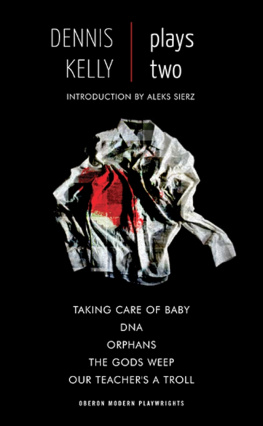
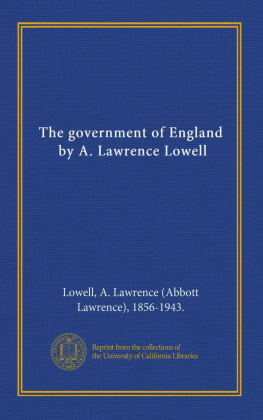
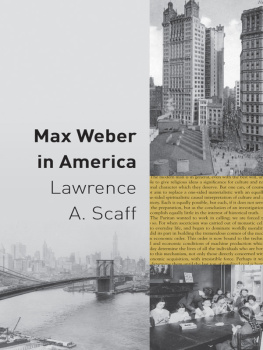
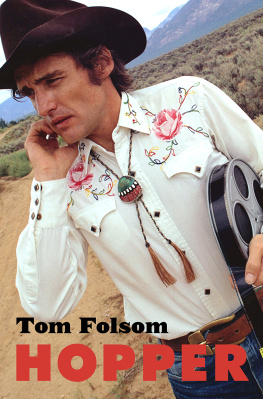
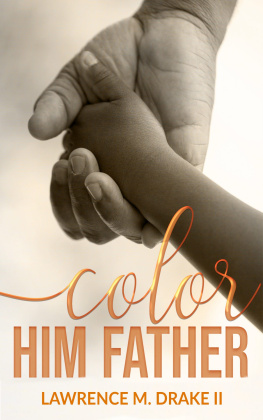
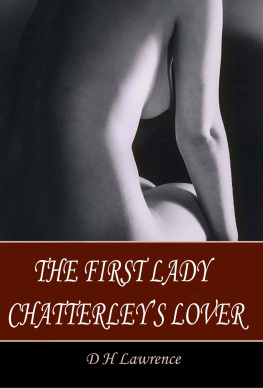


![D. H. Lawrence [Lawrence - Sons and Lovers [Annotated Version]](/uploads/posts/book/61295/thumbs/d-h-lawrence-lawrence-sons-and-lovers.jpg)

